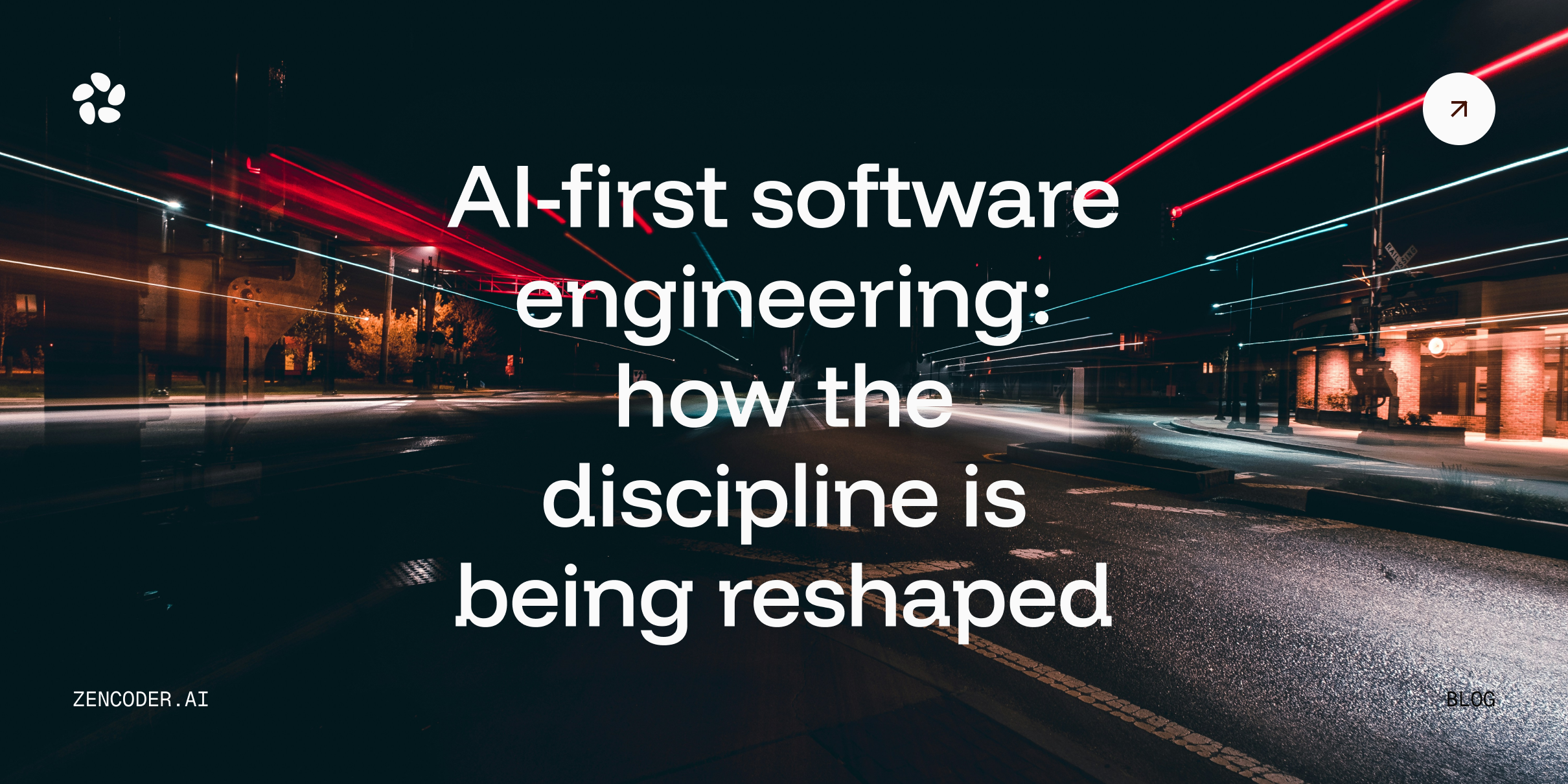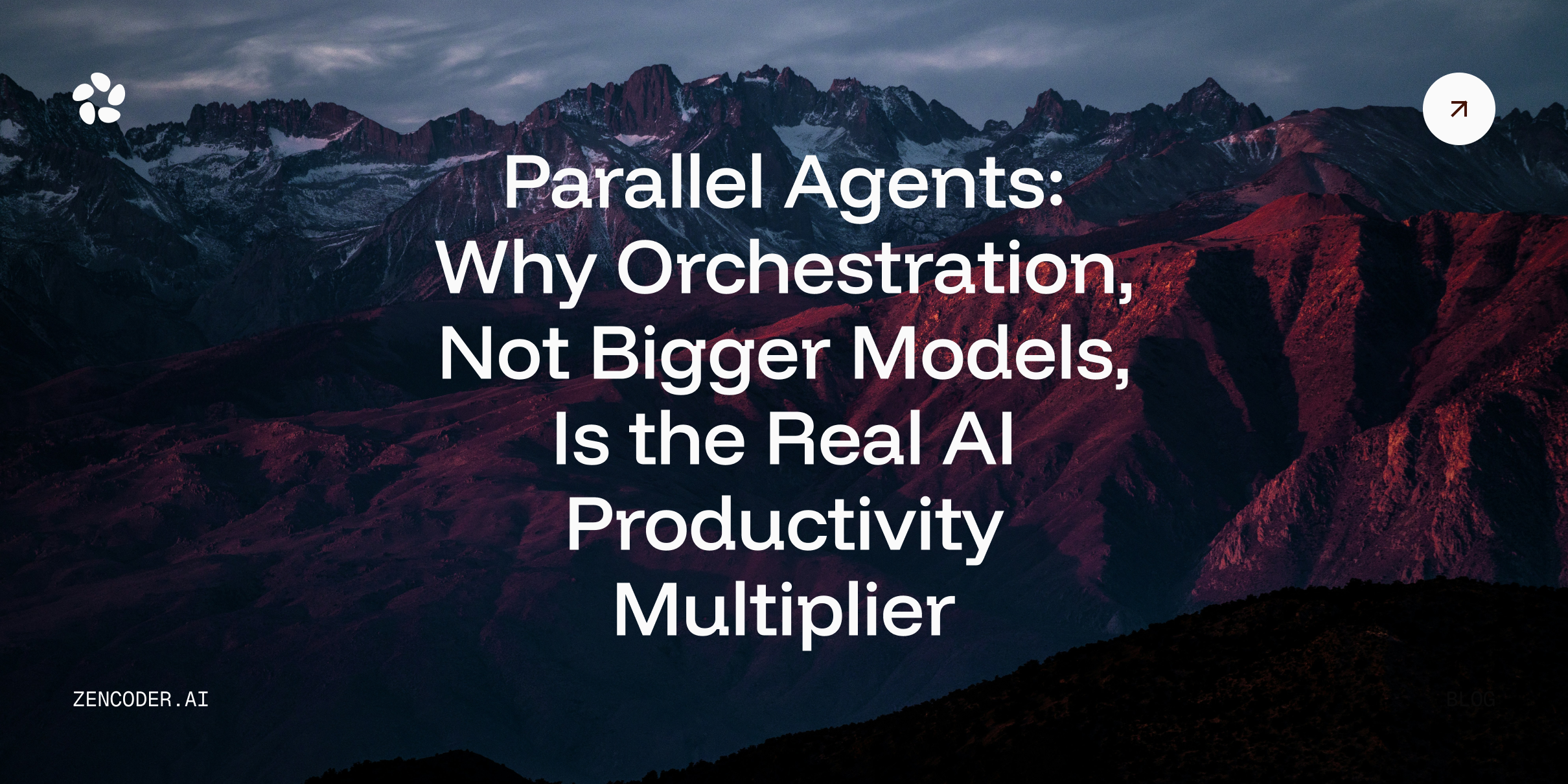Software development is more complex than ever, with fast-paced releases, sprawling infrastructures, and the constant pressure to deliver reliable updates. That’s where DevOps comes in—a practice that bridges the gap between development and operations to streamline the process. But as software continues to evolve, DevOps can become overwhelming. Enter AI-powered coding agents. These AI tools are becoming a key part of modern DevOps, helping to optimize workflows, manage infrastructure, and improve the overall development lifecycle.
AI’s Impact on DevOps Practices
Artificial intelligence is transforming the way DevOps operates, making it faster, smarter, and more efficient. Let’s dive into how AI-powered tools are changing specific DevOps practices.
Continuous Integration/Continuous Delivery (CI/CD)
AI can optimize your CI/CD pipelines by automating routine tasks, predicting issues before they happen, and analyzing data to provide real-time feedback. Incorporating DevOps penetration testing ensures that generated and deployed changes are security-validated in real-time, identifying vulnerabilities before they reach production.
It helps teams spot bottlenecks, reduce build times, and ensure that each stage of the pipeline runs smoothly, allowing for more efficient code integration and faster delivery.
For example, Zencoder’s code repair and unit test generation capabilities can help you to automate testing and ensure code quality in your CI/CD pipeline. This directly addresses the need for more automation in DevOps while positively impacting Quality Assurance (QA).
Automated Testing
AI-assisted tools can automatically generate test cases, including those that cover tricky edge cases that are easy to miss. AI can also analyze past test results to improve future testing, ensuring your code is more robust and less prone to bugs slipping through the cracks. This reduces the time and effort required to manually write and maintain tests.
Zencoder’s AI unit test generation automatically generates comprehensive test cases and intelligently identifies and covers tricky edge cases (that are often missed in manual testing). AI’s ability to analyze past test results to continually refine and improve future testing strategies ensures your codebase remains robust and resilient. This significantly reduces the time and effort traditionally required for the manual creation and maintenance of test suites, allowing you to focus on delivering high-quality code.
Infrastructure Management
AI plays a big role in managing infrastructure as well. From automating the provisioning of resources to optimizing the allocation of servers, AI helps manage cloud and on-premise infrastructure efficiently. It can predict when scaling is needed, prevent resource overuse, and reduce costs by automating routine infrastructure tasks. To effectively coordinate these automated processes across multiple providers and environments, organizations often use multi-cloud management platforms, which centralize monitoring, governance, and optimization for seamless and efficient operations.
Example
Imagine your online store is about to launch a major sale. You anticipate a surge in traffic, but you need to be sure your website can handle the load without crashing. AI can automate this process. As traffic increases, AI seamlessly adds more computing power to your website, eliminating the need for manual intervention or concerns about downtime.
AI can learn from your website's traffic patterns, predicting future spikes so you can proactively allocate resources. If certain servers are underutilized, AI can intelligently reallocate them to areas with higher demand. This prevents overspending on unnecessary resources and ensures optimal performance during peak times.
By automating these tasks, AI frees your team from constant monitoring and resource management, allowing them to focus on core business objectives like product development and customer satisfaction.
AI and DevOps Collaboration
While AI is powerful, it’s important to see it as an assistant, not a replacement for DevOps engineers. AI coding agents can handle repetitive or time-consuming tasks, freeing up engineers to focus on more strategic work. This collaboration allows DevOps engineers to prioritize tasks like improving system architecture, solving complex issues, and ensuring overall system reliability.
At the same time, human expertise is still critical. AI is only as good as the data and rules it’s been given. Engineers bring the context, critical thinking, and creativity needed to fine-tune the AI’s output and ensure that systems are running smoothly.
Example
For instance, imagine a scenario where your team is managing a large-scale cloud infrastructure. An AI coding agent can automatically monitor resource usage and predict when additional servers will be needed, scaling the infrastructure up or down based on traffic patterns. This takes a lot of pressure off the team by handling routine scaling decisions and saving costs.
However, if an unexpected spike in traffic occurs due to a new product launch or a sudden bug, the AI might not have the context to respond appropriately. Here’s where human expertise comes in. A DevOps engineer can quickly step in, analyze the situation, and make decisions based on the bigger picture—like prioritizing certain servers or deploying fixes to prevent service interruptions. In this case, the AI assists with everyday tasks, but the engineer’s insight ensures the system stays reliable during unusual or complex events.
Benefits of AI in DevOps
The rise of AI-powered tools in DevOps comes with a range of benefits:
- Increased Efficiency: Automating routine tasks with AI means less manual effort and more time for critical work. From speeding up CI/CD pipelines to automating infrastructure, efficiency is boosted across the board.
- Improved Code Quality: AI-generated tests can cover a broader range of scenarios, leading to more thorough testing and fewer bugs in production.
- Enhanced Reliability: AI tools help keep systems stable by automatically managing resources and detecting potential issues before they escalate.
- Faster Time to Market: With AI optimizing workflows and automating processes, teams can deliver updates faster, staying ahead of deadlines and responding to market demands quickly.
Challenges and Future Directions
As with any transformative technology, the adoption of AI in DevOps comes with its own set of challenges. It's essential to maintain a balanced perspective, acknowledging both the potential benefits and the obstacles that lie ahead.
Explainability and Trust in AI
One major challenge is trusting the AI’s decisions, especially when it comes to critical systems. It’s not always easy to understand why an AI tool made a specific recommendation or automated a particular task. This lack of transparency can make teams hesitant to fully rely on AI tools.
However, solutions are emerging to address this. Tools like Zencoder's AI Chat Assistant offer a glimpse into the AI's decision-making process, providing insights and explanations that can foster transparency and build confidence in the AI's capabilities.
Integration with Existing Tools
Another challenge is smoothly integrating AI into existing DevOps workflows and toolchains. While many AI tools offer plug-and-play solutions, there’s still work to be done in making sure they fit seamlessly into your current setup.
Zencoder is actively addressing the concern around existing tools by providing a wide range of IDE integrations which strive to make the incorporation of AI capabilities into your preferred development environment as smooth as possible.
The Future
Looking ahead, machine learning and AI in DevOps will continue to evolve. We might see self-learning AI agents that can adjust and improve their performance without manual input, making them even more efficient over time. Additionally, AI-powered security automation could play a bigger role in proactively identifying vulnerabilities and securing systems before issues arise.
Tools that Empower Modern DevOps
The DevOps landscape is rapidly evolving, and AI-powered tools are at the forefront of this transformation. Zencoder exemplifies how AI coding agents can elevate DevOps practices. With features like AI unit test generation for robust testing, code repair for enhancing code quality, and an AI chat assistant to foster transparency, Zencoder addresses some of the key challenges we've explored. It also empowers teams to leverage AI's potential for increased efficiency, improved reliability, and faster time-to-market.
As we look towards the future, embracing such innovative tools will be crucial for DevOps teams to stay ahead of the curve and continue to deliver high-quality software at speed. The collaboration between humans and AI in the DevOps space is not just a trend – it's the future of software development.
Conclusion
AI coding agents are becoming an essential part of modern DevOps, streamlining workflows, improving code quality, and automating infrastructure management. While there are still challenges to overcome, such as explainability and integration, the benefits far outweigh the hurdles. By working alongside AI tools, DevOps teams can focus on more strategic tasks, ultimately delivering more reliable software faster. As AI continues to evolve, its role in DevOps will only grow, making it a vital component of the future of software development.


_%20The%20Engineering%20Method%20AI%20Needed%20(1).webp)
